Joint Mathematics Meetings 2025
Join Pacific Northwest National Laboratory (PNNL) at JMM 2025 in Seattle, Washington!
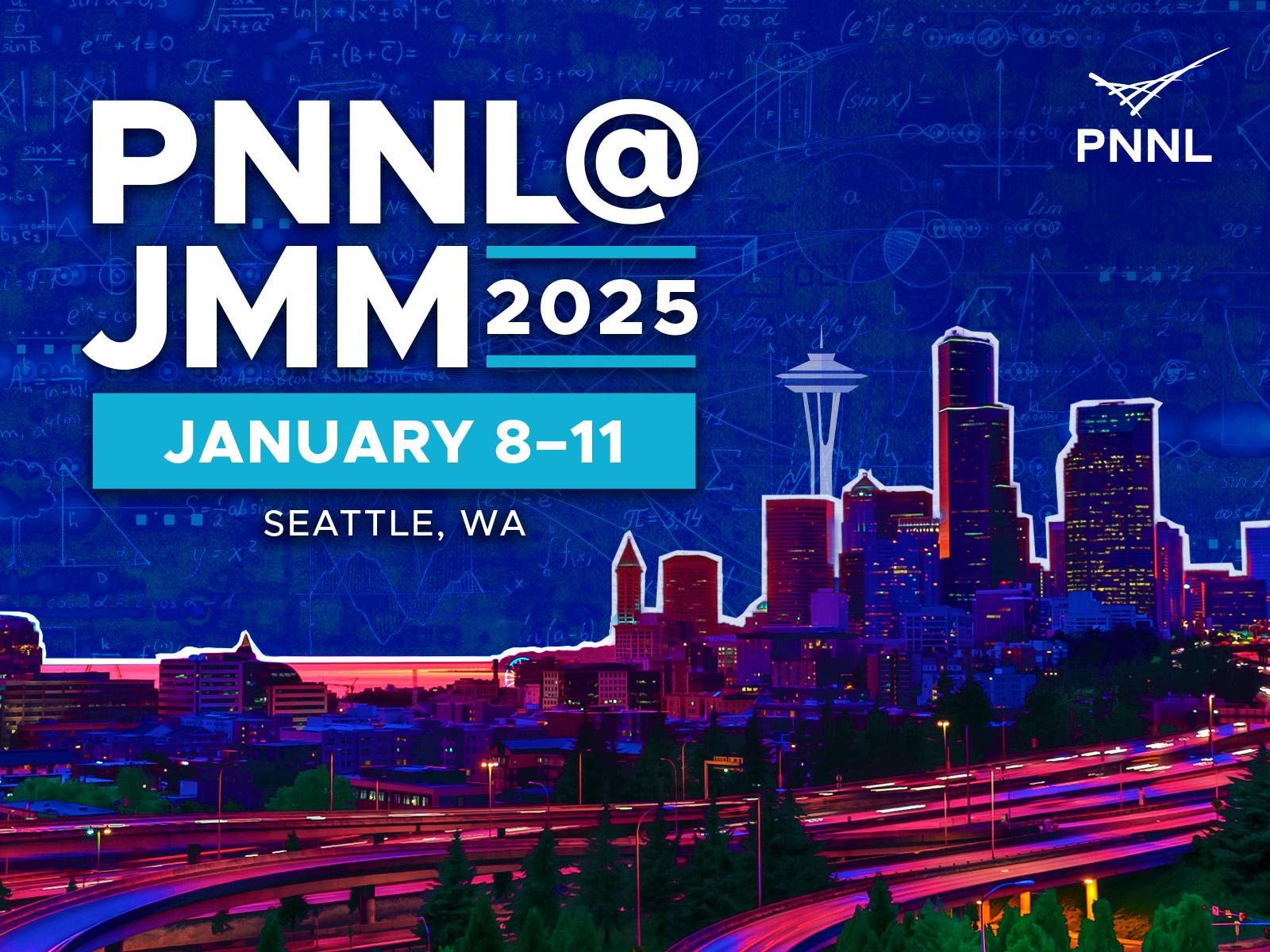
Seattle, WA
Join PNNL at the 2025 Joint Mathematics Meetings! JMM is the world's largest gathering of mathematics experts and professionals. The American Mathematical Society (AMS), in collaboration with 16 partnering organizations, will host this exciting annual event in Seattle, WA––the headquarters of industry-leading tech companies and digital titans.
Featured PNNL Sessions
Wednesday, January 8
AMS Special Session on Mathematics of Knowledge Graphs: Theory and Application
1st Session: 8:00 a.m.–12:00 p.m. PST | Location: Tahoma 4, Seattle Convention Center Arch at 800 Pike
2nd Session: 1:00–5:00 p.m. PST | Location: Tahoma 4, Seattle Convention Center Arch at 800 Pike
Organizers: Sinan Aksoy, Bill Kay, and Patrick Mackey
Summary: This session explores the growing use of knowledge graphs in artificial intelligence (AI), examining when alternative combinatorial structures may better represent knowledge systems. It addresses algorithmic and computational challenges posed by knowledge graph methodologies and highlights mathematical approaches to overcome them, fostering collaboration across academia, industry, and government to advance this field.
AMS Special Session on Topological Machine Learning
1st Session: 8:00 a.m.–12:00 p.m. PST | Location: 607, Seattle Convention Center Arch at 705 Pike
2nd Session: 1:00–5:00 p.m. PST | Location: 607, Seattle Convention Center Arch at 705 Pike
Organizers: Stephen Young, Brett Jefferson, and Emilie Purvine
Summary: This session explores the role of topology in AI and machine learning (ML), highlighting its robustness to data noise and ability to model complex interactions. It focuses on leveraging topological methods to develop novel models and gain insights, showcasing the intersection of mathematics and AI in driving scientific advancements.
AMS Special Session on Topological, Algebraic, and Geometric Methods for Safe, Robust, and Explainable Machine Learning
1st Session: 8:00 a.m.–12:00 p.m. PST | Location: 613, Seattle Convention Center Arch at 705 Pike
2nd Session: 1:00–5:00 p.m. PST | Location: 613, Seattle Convention Center Arch at 705 Pike
Organizers: Henry Kvinge, Tegan Emerson, Tim Doster, and Scott Mahan
Summary: This session highlights research leveraging topology, algebra, and geometry to enhance ML safety, robustness, and explainability. It features novel mathematical approaches to ML and studies illuminating why state-of-the-art models succeed or fail, advancing understanding and innovation in the field.
Thursday, January 9
AMS Special Session on Machine Learning to Accelerate Mathematical Discovery
1st Session: 8:00 a.m.–12:00 p.m. PST | Location: Skagit 2, Seattle Convention Center Arch at 800 Pike
2nd Session: 1:00–5:00 p.m. PST | Location: Skagit 2, Seattle Convention Center Arch at 800 Pike
Organizers: Helen Jenne, Henry Kvinge, and Davis Richard Brown
Summary: This session showcases how ML is augmenting mathematical research, enhancing efficiency, intuition, and effectiveness across diverse disciplines. It highlights recent advancements and applications of modern ML methods in mathematics, illustrating their growing role in advancing the field.
Society for Industrial and Applied Mathematics Special Session on SIAM Minisymposium on Scientific Machine Learning: Recent Advances and Future Directions
1st Session: 8:00 a.m.–12:00 p.m. PST | Location: 2B, Seattle Convention Center Arch at 705 Pike
2nd Session: 1:00–5:00 p.m. PST | Location: 2B, Seattle Convention Center Arch at 705 Pike
Organizer: Paniagotis Stinis
AMS Special Session on Variational Methods in Quantum Computing
1st Session: 9:00 a.m.–12:00 p.m. PST | Location: 606, Seattle Convention Center Arch at 705 Pike
2nd Session: 2:00–5:00 p.m. PST | Location: 606, Seattle Convention Center Arch at 705 Pike
Organizer: Carlos Marrero
Summary: This session explores the practical utility of quantum computing, focusing on variational quantum algorithms in scientific applications. It emphasizes mathematical research that offers rigorous insights into the structure of these algorithms, aiming to advance understanding and applicability in real-world domains.
Friday, January 10
JMM Workshop on Advances in Neural Operators and Uncertainty Quantification for Scientific Modeling
Session: 3:00–4:30 p.m. PST | Location: 4C-2, Seattle Convention Center Arch at 705 Pike
Organizer: Amanda Howard and Panagiotis Stinis
Summary: This session focuses on the use of neural operators to model complex systems, offering faster solutions compared to traditional models. It covers both theoretical and computational aspects, including the design, training, and uncertainty quantification of neural operators.
Featured PNNL Speakers
Wednesday, January 8
Analysis of internal activations to indicate undesirable behaviors in large language models
Session: 8:30–9:00 a.m. PST | Location: 613 (Level Six, Seattle Convention Center Arch at 705 Pike)
Speaker: Jonathan Tu
Summary: This talk explores mechanistic interpretability in deep learning, focusing on analyzing neural network computations to understand their ”knowledge” and performance. Highlighting large language models (LLMs), it examines internal representations of concepts and efforts to detect uncertain or false responses, presenting tools to identify and mitigate undesirable behaviors like factual errors or refusals. Read more.
Mathematical Representations of Knowledge Hypergraphs
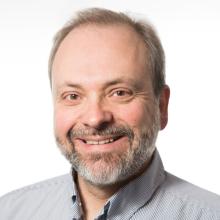
Session: 10:00–10:30 a.m. PST | Location: Tahoma 4 (Level Three, Seattle Convention Center Arch at 800 Pike)
Speaker: Cliff Joslyn
Summary: This talk examines the mathematical foundations of knowledge graphs, tracing their evolution from logical inference systems to neurosymbolic AI. It explores advanced structures like hypergraphs with ontological attributes, emphasizing ”fully ontologized knowledge hypergraphs” and their topological methods. This approach highlights innovative mathematical tools for consistency and reasoning in knowledge systems. Read more.
Modeling Many-to-Many Maps
Session: 11:00–11:30 a.m. PST | Location: 613 (Level Six, Seattle Convention Center Arch at 705 Pike)
Speaker: Elizabeth Diane Coda
Summary: This talk addresses modeling many-to-many processes in real-world data, where inputs can map to multiple outputs and vice versa. It explores using fiber bundle morphisms to capture such structures, enabling analysis of output distributions for specific inputs and vice versa. This approach enhances understanding of variance and input-output relationships. Read more.
How do LLMs Perform Arithmetic and Why Do They Make Mistakes
Session: 2:00–2:30 p.m. PST | Location: Tahoma 1 (Level Three, Seattle Convention Center Arch at 800 Pike)
Speaker: Elizabeth Diane Coda
Summary: This talk examines intrinsic signals of hallucination in LLMs by analyzing the geometry and topology of hidden activations. Focusing on mathematical prompts, it explores how internal representations and structural properties of activations differ between accurate and erroneous outputs, advancing data-agnostic methods for detecting hallucinations in LLMs. Read more.
Dynamical Analysis of Knowledge Systems
Session: 2:00–2:30 p.m. PST | Location: Tahoma 4 (Level Three, Seattle Convention Center Arch at 800 Pike)
Speaker: Audun Myers
Summary: This talk explores dynamical systems analysis techniques for combinatorial and topological data structures, such as graphs, hypergraphs, and simplicial complexes. It applies these tools to knowledge systems, introducing a novel multi-scale method to uncover temporal dynamics, offering new insights into the evolving structure of knowledge representations. Read more.
SIGMAA-UR Panel: Undergraduate Research in Mathematics for Addressing the Sustainable Development Goals in the Age of AI
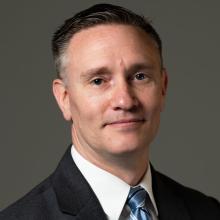
Session: 3:00–4:30 p.m. PST | Location: 4C-4, Seattle Convention Center Arch at 705 Pike
Panelist: Aaron Luttman
Summary: This panel discusses mentoring undergraduate math research on the United Nations Sustainable Development Goals in the AI era. It highlights academic and career benefits, contrasts with traditional projects, and offers practical advice from experienced educators on integrating AI into sustainability-focused research for impactful student experiences.
Thursday, January 9
Scientific Machine Learning at Pacific Northwest National Laboratory
Session: 8:30–9:00 a.m. PST | Location: 2B (Level Two, Seattle Convention Center Arch at 705 Pike)
Speaker: Amanda Howard
Summary: This talk explores scientific ML at Pacific Northwest National Laboratory, highlighting challenges in training with diverse data types and physics-informed loss functions. It examines multifidelity training and introduces new neural architectures enabling greater accuracy and complexity in ML models. Read more.
Symmetries in Neural Networks and Why They Matter
Session: 10:30–11:00 a.m. PST | Location: 613 (Level Six, Seattle Convention Center Arch at 705 Pike)
Speaker: Henry Kvinge
Summary: This talk highlights the critical role of symmetry in neural network architectures, focusing on symmetries arising from pointwise non-linearities. It explores their implications for information storage and optimization, offering insights into how these intrinsic symmetries influence learning and network properties. Read more.
Multiphase Markov Chains
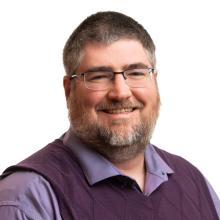
Session: 10:00–10:30 a.m. PST | Location: Tahoma 3 (Level Three, Seattle Convention Center Arch at 800 Pike)
Speaker: Stephen Young
Summary: This talk examines random walk-based methods in network science, extending their application beyond graphs to hypergraphs and simplicial complexes. Focusing on probabilistic transitions in these structures, it introduces a framework to analyze such random walks and uncovers surprising limitations in their effectiveness. Read more.
Open Applied Topology: A Fast, Flexible, User-Friendly Tool for Matrix Algebra in TDA
Session: 1:30–2:00 p.m. PST | Location: 617 (Level Six, Seattle Convention Center Arch at 705 Pike)
Speaker: Gregory Henselman-Petrusek
Summary: This talk introduces Open Applied Topology, an open-source library designed to address computational challenges in topological data analysis (TDA). Open Applied Topology provides a high-performance linear algebra solver for operations like matrix factorization and persistence computation, offering a user-friendly interface and integration with Python libraries like SciPy. The talk also explores broader trends in TDA software development and future collaboration opportunities. Read more.
Graph Embedding for Community Detection
Session: 2:00–2:30 p.m. PST | Location: Chelan 5 (Level 2, Seattle Convention Center Arch at 800 Pike)
Speaker: Zhifeng Wei
Summary: This talk explores the use of graph embedding for network data clustering, transforming network nodes into vector representations in Euclidean space. By applying k-means clustering to these vectors, we identify cluster structures in perturbed networks. The findings provide insights into network data analysis and strategies for recovering clusters after node removal. Read more.
HEdge Against Cyber Attacks with HEdge2Vec
Session: 3:30–4:00 p.m. PST | Location: Tahoma 3 (Level Three, Seattle Convention Center Arch at 800 Pike)
Speaker: Alyson Gauthier
Summary: This talk introduces HEdge2Vec, an extension of Node2Vec for hypergraphs, using random walks on their bipartite representation to create embeddings for hyperedges. The algorithm, particularly useful in cybersecurity, leverages hypergraphs' ability to model multi-way relationships, enabling the detection of anomalous, potentially malicious network activity. Read more.
Friday, January 10
AMS Committee on the Profession Panel Discussion: AI tools for Mathematical Reasoning: What is the Current Status, Outlook for the Future, and Impact on the Mathematics Profession?
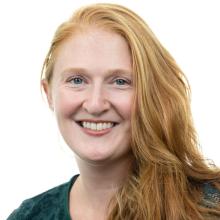
Session: 1:00–2:30 p.m. PST | Location: 4C-2, Seattle Convention Center Arch at 705 Pike
Panelist: Tegan Emerson
Summary: This panel brings together AI experts to discuss the use of AI tools for mathematical reasoning. Panelists will explore the future of AI in mathematics, covering topics like curriculum development, interdisciplinary collaboration, workforce impacts, and other key issues shaping the profession.
A Family of Arbitrary-Order Numerical Methods for Solving the Kinetic Collection Equation and Variants Thereof
Session: 1:30–1:45 p.m. PST | Location: 400 (Level Four, Seattle Convention Center Arch at 705 Pike)
Speaker: Sean Santos
Summary: This talk introduces a novel family of methods for solving the kinetic collection equation and similar integro-differential equations. Inspired by reconstruct-evolve-average schemes, the methods use basis functions to approximate particle property distributions, enabling high-order accuracy in discretization while remaining computationally efficient and minimal in assumptions. Read more.
More Accurate Time Integration for Rain Microphysics with SPAECIES
Session: 2:30–3:00 p.m. PST | Location: 3A (Level Three, Seattle Convention Center Arch at 705 Pike)
Speaker: Sean Santos
Summary: This talk presents SPAECIES, a new software package for coupling and time integration of atmospheric microphysics in climate models. It explores different time integration approaches, such as higher-order explicit and implicit-explicit methods, to reduce discretization errors. The work demonstrates how these methods improve rain microphysics representation in long-term climate simulations. Read more.
Mathematical Frameworks for AI in High-consequence Environments

Session: 4:00–4:30 p.m. PST | Location: 618 (Level Six, Seattle Convention Center Arch at 705 Pike)
Speaker: Aaron Luttman
Summary: This talk discusses the critical role of mathematicians and scientists in quantifying the trustworthiness of AI systems for high-consequence applications. Luttman will highlight frameworks for ensuring model reliability, exploring risk mitigation strategies, and emphasizing the importance of scientific and engineering input in AI decision-making processes. Read more.
Careers at PNNL
As a national laboratory that conducts an abundance of research using advanced mathematics, we are always searching for talented individuals looking to be a part of our mission.
Join us!